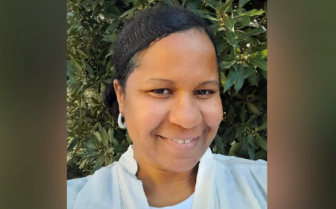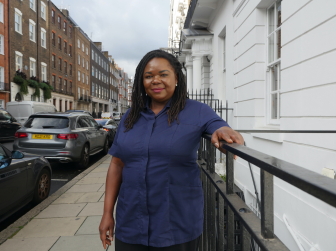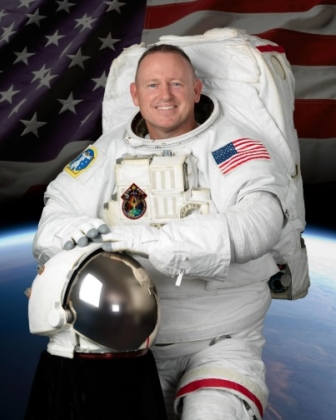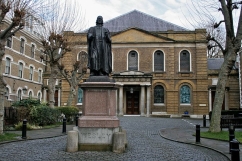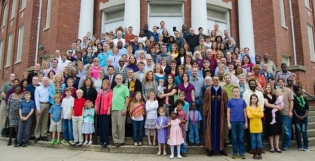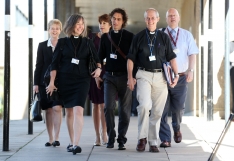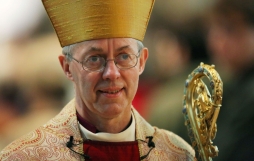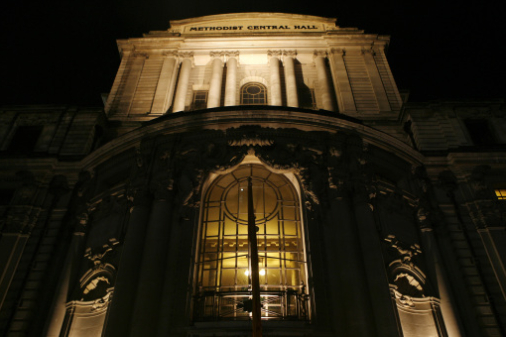
Most Methodists in Britain might be prepared to accept Methodist bishops for the first time, according to a senior church figure. Because the Methodist Church here is regarded as the "mother" church, such a step would not only bring it closer to the Church of England but lead to an unprecedented opportunity for the 80 million Methodists worldwide to join in mission with the 70-million strong Anglican Communion, the General Synod of the Church of England was told.
More than a decade after the Methodist-Anglican covenant was signed in 2003, the synod agreed to continue to find ways for the churches to work together. But significant barriers to unity remain.
Prof Peter Howdle, co-chair of the commission implementing the covenant, called for a "really focused look" at the key obstacles which still prevent moves towards a deeper communion.
The first of these was for Methodists in the UK to consider the possibility of having bishops in England. US Methodists already have bishops. Methodists have ordained women for decades. Now the Church of England has legislated to consecrate women, more Methodists might be willing to consider shared ministry.
The second would be for the Church of England to consider "interchangeability of ministries" by acknowledging the validity of Methodist orders.
Prof Howdle told the synod: "Although we do not have a Methodist Communion analogous to the Anglican Communion, there are, as members of the World Methodist Council, autonomous Methodist Churches in nearly every country in the world with a world-wide membership of approximately 80 million.
"The majority of these are episcopally ordered but not within the historic episcopate. If the Methodist Church of Great Britain, still regarded by many as the 'mother church', were to become ordered in the historic episcopate, I believe that it could begin to transform the relationship of other Methodist churches with their Anglican neighbours, potentially a very significant opportunity for the worldwide mission of the Church."
In Methodist thinking, the Methodist Conference exercises an episcopal ministry of oversight. However, a report to the Synod and to the Methodist Conference earlier this year from the Joint Implementation Commission referred to the possibility of expressing this "in a personal form of connexional, episcopal ministry (such as a President Bishop) in such a way that it could be recognised by the Church of England as a sign of continuity in faith, worship and mission in a church that is in the apostolic succession".
Prof Howdle referred to a previous but unsuccessful attempt at unity. "As teenagers in the 1960s my future wife and I were excited to hear about the Conversations between the Methodist Church and the Church of England and that there was the possibility of their becoming one. Well, that was not to be," he said. The plans then were rejected by the synod.
"I have heard and understand the frustrations and the boredom expressed with the Covenant process. Many Methodists have asked: where is the Covenant going; what has it achieved? Some say we have gone beyond 20th century ecumenism and our post-modern culture does not want that type of approach."
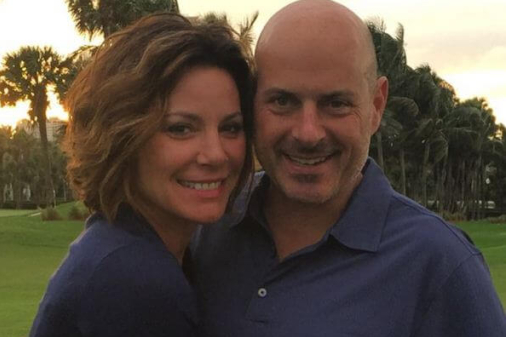
He insisted the covenant had achieved a lot. "The relationship between our two churches at all levels has changed. There is a culture of encouraging, sharing and cooperation. I know it doesn't happen everywhere, and some Methodists can be very protective of their traditions and reluctant to change. But overall the change has been positive."
The two churches work together now in mission and sometimes with shared buildings and ministry.
The president of the Methodist Conference, Rev Ken Howcroft, listened in public gallery at synod as not one person spoke against the closer cooperation between Anglicans and Methodists. The consensus was described as "encouraging" by the Diocese of Bristol.
In a theological comment, Paul Fiddes, ecumenical representative for the Baptists, said the covenant could become an "exclusive" or "inclusive" reality. He said that "covenant" went to the heart of what it means to be "church".
Synod was told it was a "kairos" moment after 50 years of talks and more than a decade since the covenant was signed in 2003 but there was still a need to go deeper.
However it had led to a new culture of sharing, support and encouragement.
